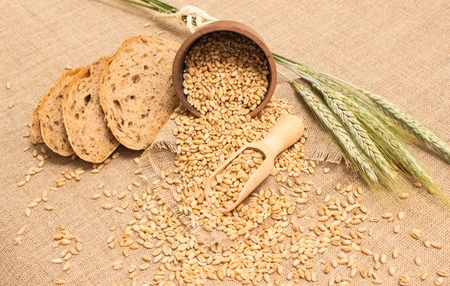
First, if you came to this page hoping to find a new diet fad or extreme weight loss strategy, I’m sorry to disappoint you. I’m not a big fan of these programs and I’ll explain why. It’s my belief that the best, safest, and most effective way to lose weight is through proper nutrition, exercise and life style changes that are healthy and maintainable. Yes, you’ll hear stories from friends about how much they lost through cleanses or eliminating carbohydrates, but invariably these folks gain their losses back. And worse yet, many of these crash courses are unsafe and can cause damage to internal organs.
The human body is designed to function most effectively with a proper balance of fats, carbohydrates, and proteins. Now depending on your physiological objectives, you might adjust the proportional amounts of each, but completely eliminating one is unhealthy. You’d think someone was rather nuts if they said: “I want my car to go faster so I’m going to make it lighter by taking all the oil out.” And yet we constantly hear people say things like: “I’m eliminating all carbs from my diet because I want to lose weight.” Well, to me this is absurd as the first statement. Proteins, Carbohydrates and fats are all essential components to a healthy, balanced nutrition plan.
How to lose weight?
The best and safest and most reliable way to lose weight is to eat healthful meals, exercise, and reduce your caloric intake. You should avoid saturated fats and sugars and eat plenty of fresh vegetables and fruits.
Each of us has what is termed a basal metabolic rate. This refers to the number of calories our human body requires to maintain simple metabolic function. This is the calories expended without movement or exercise and specifically refers to the calories our body expends to maintain muscle and organ function. This is a useful measure to know because with it, we can begin to put together a strategy for weight loss.
In order to lose one pound of fat, you’ll need to create a caloric deficit of 3500 calories. What does this mean? In plain terms, it means for every 3500 calories you burn without replacing with either a meal or a snack, you’ll reliably lose one pound of fat. The best way to create that caloric deficit is through exercise and reduction of caloric intake. If we don’t consume enough calories, our body will first go to our fat stores. If you don’t have a proper nutrition plan, your body will also take muscle. This we don’t want as every pound of muscle you add will burn an extra 50 calories a day whether or not you’re using that muscle mass. This is because muscle mass requires calories to maintain. This is the argument for increasing lean muscle mass, you’ll increase your basal metabolic rate by 50 calories for every pound of muscle you add.
How fast can I lose weight?
It’s generally considered safe lose 1% of your body weight per week. Any faster than this will probably be a result of water loss and any faster has been determined to be unhealthy for the human body. It drives me nuts when I see those reality weight loss shows on TV and the trainer demands “I want her to lose 18 pounds by next week!” Here’s someone who is advocating an unsafe weight loss objective who is in a position of authority and is obviously misinformed. This is not only an unsafe weight loss goal, it’s also an unrealistic goal and one that’s likely to fail. Don’t set yourself up for disappointment and failure. Be patient, consistent, intelligent and determined.
Are carbs bad?
No. Good carbohydrates are the what your body uses for energy and the nutrient most suited to replace the glycogen our muscles expend during exercise. High glycemic carbs are carbs that in general should be avoided with some exceptions. High glycemic carbs such as sugars cause a rapid elevation in blood sugar thus triggering the release of insulin. Low glycemic carbs release sugars more slowly and are better suited for the athlete that wants a consistent and steady flow of energy. If you have a sweet tooth, there is actually a good time to have high glycemic carbs, and that’s directly after an enthusiastic workout. Depleted muscle cells are permeable to glycogen and thus the body will process those sugars much better. So for recovery, have a glass of apple juice, chocolate milk, or your sweet treat after your hard workout.
What is a Healthy Diet?
A healthy diet includes:
- Fruits, vegetables, whole grains, and low-fat or fat free milk products
- Lean meats, poultry, fish beans, eggs, nuts
- Low in saturated fats and trans fats, cholesterol, salt or sodium and added sugars






